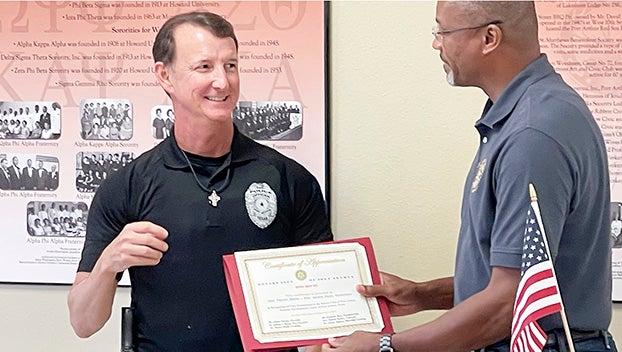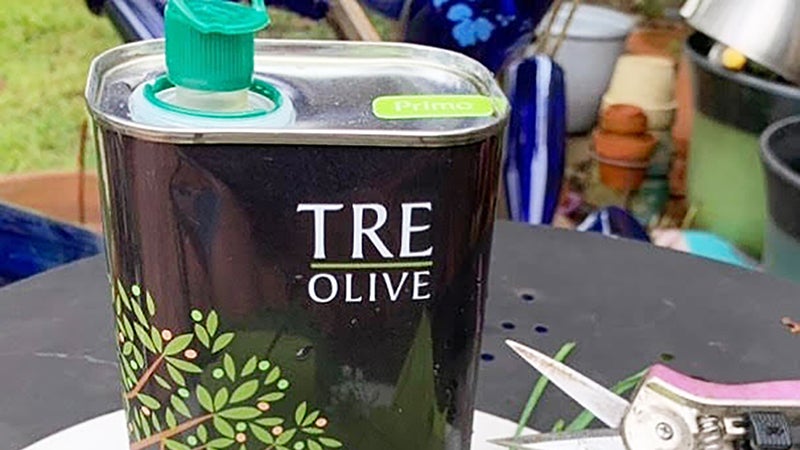HEALTHY LIVING — Maintaining your fluid levels
Published 2:47 pm Friday, June 14, 2019
Did you know the human body is more than 60 percent water, blood is 92 percent water, the brain and muscles are 75 percent water and bones are about 22 percent water?
Just to maintain those levels, the average person must consume about eight eight-ounce glasses of water a day, a half-gallon. This varies according to your size.
That is just the average person going about their average day. The American Academy of Pediatrics recommends that children drink six glasses of water on an average day and during activity, even children can lose up to a pound of fluid per hour. The AAP suggests kids should drink about five ounces of water (two kid-size gulps) every 20 minutes for an 88-pound child. Kids and teens weighing up to 132 pounds should drink nine ounces of water every 20 minutes during activity. This is the minimum it takes to properly digest your food and keep those kidneys functioning.
Hydration is always important, and during pregnancy those fluids are even more precious than usual. Your body needs water to form amniotic fluid, produce extra blood volume, build new tissue, carry nutrients, help indigestion and flush out your wastes and toxins.
Pregnant women should aim to drink 10 cups (77 oz.) of fluids each day, according to the Mayo Clinic. If it’s hot or you’ve been exercising, you probably need even more.
Let’s talk about the person working out or putting forth higher than normal activity levels. And we are not talking training for a triathlon, we are talking a one-hour workout, a trip to a theme park, a hike, biking or even aquatic exercise.
Yes, that right, even if you are in the pool, you need to stop periodically and drink some water. The first time I went to the Mouse House in Florida, my daughter, who works there, warned me repeatedly to drink, drink and drink. I did not listen.
Halfway through the day I got a massive headache, got nauseated, got sick and it took me about an hour of drinking water to get back to functionality. After that, you better believe I kept a bottle of water with me and kept refilling it.
A normal, healthy person who is not used to the heat can, in heat-wave conditions, sweat as much as 1.5 quarts of liquid in an hour. Someone acclimated to the hot weather develops the ability to sweat (and thus cool off) at a more intense rate, losing up to two quarts of sweat in an hour. Considering that a quart of water weighs about 2 pounds, that’s 3-4 pounds of water weight lost an hour!
Let’s talk about the consequences of not drinking enough water. Thirst isn’t a helpful indicator of hydration. In fact, when you’re thirsty, you could already be dehydrated, having lost as much as 1 to 2 percent of your body’s water content. From the very minor increased thirst, on to dry mouth/ swollen tongue, weakness, dizziness, the aforementioned headache and nausea, to the much worse — palpitations, confusion, fainting, inability to sweat, and decreased urine output.
There are many reasons why you can become dehydrated; we are concentrating on increased physical activity. Listen to your body. It will let you know right away when you need to hydrate. As a precaution, an hour before you hit the gym, grab an extra 20 ounces to hydrate before you dehydrate. It takes about 60 minutes for the liquid to travel from your stomach to your muscles. In the heat, it’s even more important to take in adequate liquids. Drink again after your workout.
A quick measure to see if you are drinking enough, check the color of your urine; it should be pale yellow, or the color of straw. The darker it is, the more concentrated it is and that could be a sign of dehydration. If you are not going to the bathroom once an hour, you are not drinking enough.
How do I get enough liquids in me? The easy answer is to drink water, but you have some great and tasty options. How about watermelon, celery, cucumbers, strawberries, lettuce, milk or juice? All very good choices to keep you running like a well-oiled machine.
Let’s touch on the things that pull the water out of you: coffee, tea and alcohol. All things in moderation. If you plan on increased exertion, take in the liquids that will work for you, not against you.
So, take a break, drink frequently and stay healthy, my friends.
Jody Holton writes about healthy living for The Port Arthur News.





